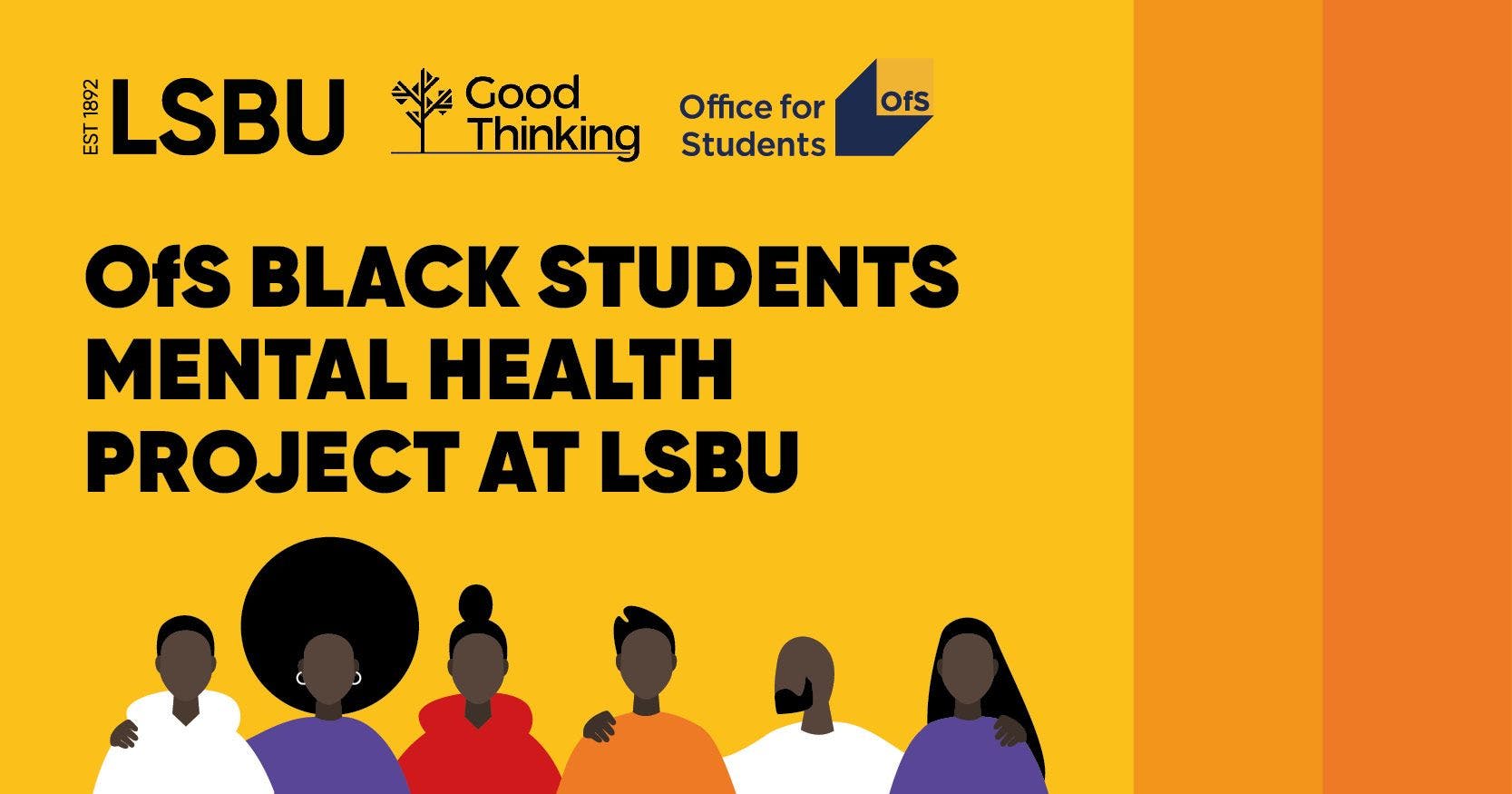An important message from Good Thinking
We regret to inform you that the Good Thinking service will be closing on 31 January 2026. This has been a difficult decision after eight years of supporting Londoners.
If you’re struggling with your mental health, please visit Every Mind Matters or Hub of Hope, or contact your GP, NHS 111, or the mental health team in your borough. For more information about the closure, read our FAQs.We have created an archive of the Good Thinking website for healthcare professionals.Approved by
LAST REVIEWED 1 November 2023
Mind the gap - why culturally competent mental health support is vital for black students in London
In this blog, Andy Owusu explains how the Office for Students' Black Students Mental Health Project is using students' voices to develop resources that encourage black students to talk about mental health and gain access to the right support at London South Bank University (LSBU).
As a black male in psychology, I am hugely interested in the black community’s attitudes to mental health and help-seeking behaviours. My MSc thesis, ‘A thematic analysis of interviews with young black men on perspectives of barriers to help-seeking behaviours in the United Kingdom,’ identified and examined three themes that illustrate how the lack of ethnic representation in mental health services is a barrier to help-seeking behaviours of young black men:
- gaps and facilitations in knowledge and accessibility of mental health services;
- the difficulties of navigating hereditary cultures and adopted social pressures;
- the challenges of responding to discrimination and mental health stigma.
My academic research and interests led me directly into my current role as Project Officer for the Office for Students (OfS) at LSBU where I lead on the Black Students Mental Health Project (BSMHP). Over the last few years, I’ve been proud to be involved in a number of amazing projects that benefit the students and black community here at LSBU, like joining the Unite Students Commission on Living Black at University as a commissioner providing mental health and wellbeing expertise, and hosting a wellbeing stage at UK Black Pride where I took part in a panel to discuss the intersectional work being done to support LGBTQ+ persons of colour in higher education and how LSBU is contributing. The BSMHP has also worked with closely with LBSU student services. We listened to student feedback on the language and imagery used to advertise the service and made changes which have facilitated a better understanding among students.
Why did the Black Students Mental Health Project (BSMHP) start up?
National data indicates that black students are significantly disadvantaged in terms of outcomes in higher education and this disadvantage further impacts those black students with a mental health diagnosis. The BSMHP aims to initiate institutional change and was set up to promote early access to mental health support services and good mental wellbeing practices and to prevent mental health deterioration in the black community.
In the 2021 academic year, the proportion of black LSBU students seen by university mental health services was level with the student population (25%). However, we found that black students were less likely to self-refer for support and were overrepresented within the university’s crisis referral pathways, including fitness to study.
Mind the gap
LSBU data indicated several contributing factors to the widening gap between mental health service awareness and service use by LSBU black students. Research within the first year of the project gave insights into the challenges that black students face, which suggested that:
- Students experience a lack of representation and culturally competent service with culturally relevant resources.
- There is a sense of isolation amongst black students and stigma around mental health and seeking help.
- Academic staff do not significantly contribute to students’ mental health and their wellbeing support journey.
- There is a lack of awareness of the support services available.
The challenge was to find ways to make services become and feel more inclusive and to help change the narrative around mental health difficulties and attitudes to seeking help within the black community.
Bridging the gap
Student voice has directed the project from the start. Our research showed that existing mental health resources were not relevant to the cultural and unique experiences that our black students faced. To provide a holistic approach to our student support, we needed to develop culturally relevant resources co-created by their peers.
Using virtual and in-person focus groups and workshops, the project team worked with students to develop all materials. The project aimed to remove the financial barriers to participation by paying student collaborators. This resulted in a student-led approach at every stage of the project, with input from a wide range of intersectional groups of black students at LSBU, including a mix of gender, sexuality, age ranges, cultural backgrounds and courses. Over 600 students contributed to our data collection to provide insight and the learning this provided allowed us to work with over 250 students to co-create resources.
Support for black students across London
We’re proud to have developed a range of podcasts, blogs and videos which address how difficult it is for black students to talk about mental health and gain access to the right support. The resources acknowledge the impact of racial microaggressions and internalised racism and provide proactive mental health practices to help minimise the potentially negative impact of students' experiences.
We partnered with Good Thinking because it works innovatively with London communities to co-create digital mental wellbeing tools and advice to support children, young people and adults. This has been the same approach we have taken to ensure student voice in our content.
At LSBU, we are passionate about widening participation and using our research and insights to benefit society more broadly. Through our partnership with Good Thinking, we aim for the support, resources and advice to reach a wider range of students and service users across London’s black communities.
Find the resources on Good Thinking
You’ll find the resources created by the Black Students Mental Health Project on Good Thinking’s new Student Mental Health Hub. Over the coming months, we’ll release new content, including podcasts, blogs and videos, to equip you with the information and support you may need as a black student to feel more confident about mental health challenges in daily life.
Good Thinking has partnered with the Black Students Mental Health Project (BSMHP) to host a range of mental wellbeing resources, including blogs, podcasts and videos, which have been created by the black community within London South Bank University (LSBU).
Explore the resources >
About the author
This blog was written by Andy Owusu, Project Officer for the Office for Students’ Black Students Mental Health Project at London South Bank University (LSBU). Andy is a black British male raised in southeast London. He graduated with a BSc in Psychology and a MSc in Mental Health and Clinical Psychology from LSBU.















